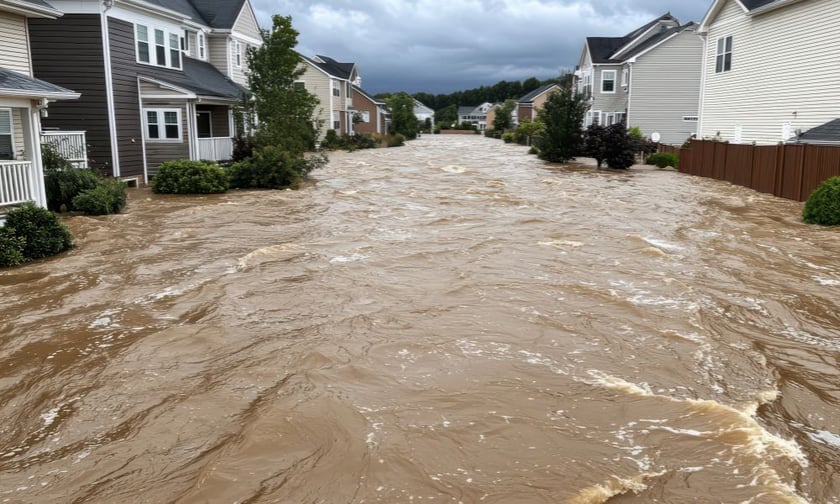

Insurance associations from the UK, Canada, Australia, and New Zealand have urged Commonwealth leaders to prioritise the economic impact of extreme weather at the upcoming Commonwealth Heads of Government Meeting (CHOGM) in Samoa.
A recent report from Verisk estimates that global natural catastrophe losses have reached an average of $151 billion per year, with $119 billion attributed to non-crop-related losses.
In a joint letter to their respective prime ministers, the Association of British Insurers (ABI), Insurance Bureau of Canada (IBC), Insurance Council of Australia (ICA), and Insurance Council of New Zealand (ICNZ) called for the issue to be discussed during the Commonwealth Business Forum on Oct. 23 and 24.
This follows a Global Insurance Protection Gap Forum held in Sydney on Oct. 18, where the four organisations, alongside insurers, regulators, and Australian government representatives, discussed the increasing gap between insured and uninsured losses caused by extreme weather.
Combined, these associations represent insurers responsible for writing approximately US$200 billion in gross annual premiums.
During the forum, participants noted that climate change is exacerbating the frequency and severity of natural disasters, widening the global insurance protection gap. Rising populations and expanding development in high-risk areas, such as flood zones, were identified as contributing factors.
Attendees called for greater collaboration between governments and insurers to manage future risks and reduce the protection gap. Additionally, they cautioned that excessive taxes and levies on insurance premiums could further reduce access to affordable coverage.
Hannah Gurga, director general of the ABI, highlighted the growing threat posed by climate change, emphasising the need for long-term planning.
“We are now at a crossroads, with a new government in post and a review of the planning system underway. It’s vital that decisions are taken for the long-term and made for the benefit of all. That’s not just investing in flood defences but also changing where and how we build. Action is needed now, not in the future when the challenge will be ever greater,” she said.
IBC president and CEO Celyeste Power shared Canada’s experience with multiple natural disasters last summer, including floods and wildfires, which resulted in $7 billion in insured losses over five weeks.
She explained that this trend reflects a global increase in severe weather events and the growing challenges of insuring properties in vulnerable areas.
“This isn’t an anomaly. It isn’t bad luck. It’s part of an escalating trend of severe weather events that is making Canada a riskier place to live, work, and insure,” she said.
ICA CEO Andrew Hall also pointed out that more frequent disasters, coupled with ongoing development in high-risk regions, are creating a widening divide between those who can afford insurance and those who cannot.
“More frequent and intense disasters, coupled with ongoing development of areas at high risk of extreme weather and growing asset values, are widening the gap globally between those who can afford insurance in high-risk areas and those who can’t – often leaving society’s least wealthy unable to rebuild and recover when disaster strikes,” he said.
Kris Faafoi, CEO of the ICNZ, echoed these concerns and emphasised the importance of cross-border collaboration between Commonwealth nations in tackling climate risks. He noted that severe weather events in New Zealand over the past year have underscored the need for a coordinated response to reduce risks and protect communities.
“By working closely together, our insurance representative bodies are committed to doing their bit to help reduce risk from natural hazards and protect our families and communities,” he said.
He also emphasised the shared goal of minimising risks from natural hazards and maintaining insurance affordability.
“By reducing the protection gap, we keep communities safe, reduce the costs to taxpayers and ratepayers and maintain insurance capacity and affordability,” Faafoi said.
